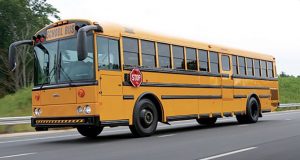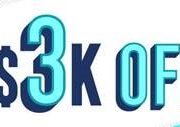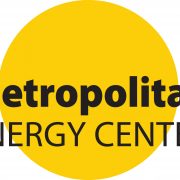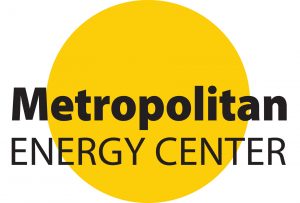written by MEC Clean Cities intern Drew Arends
In the past year or so, there has been a multitude of funding opportunities released to promote electric vehicle infrastructure. While some of this funding has been automatically allocated to state governments, the rest of it is available through a competitive grant application process. With so much funding available, the “how” in obtaining this funding can be difficult for the everyday person. With sales of electric vehicles surpassing one billion dollars to date, there is no better time to shed light on how federal funding can be achieved, especially for those in the heart of the Midwest.
At Metropolitan Energy Center (MEC), a portion of the services we provide include consultations and grant writing services for anyone looking to find financial support for alternative fuel and energy efficiency projects. In this post, I will outline some helpful tips to find grants and three particular grants available for Missourians and Kansans.
Climate Program Portal is one central location for key funding opportunities and developments related to large pieces of federal legislation, most notably the Infrastructure Investment and Jobs Act (IIJA) and the Inflation Reduction Act (IRA). By enrolling in a free membership, you can have access to the details and deadlines behind various projects. When you become a member, the dashboard part of the site provides you with the most important information. For instance, as of (date of publication), there are 44 different requests for proposals (RFPs), requests for information (RFIs), and notices of intent (NOIs). These calls stem from a wide range of organizations, with the leaders being the Department of Energy (DOE) and the Environmental Protection Agency (EPA), but closely followed by state agencies and the Department of Transportation (DOT). Further along the dashboard, you can find the specific details of each proposal, with links for more information providing additional insight under the “source” column.
Currently, some of the biggest opportunities for Missourians and Kansans include the FRE, CRP, and the Charging and Fueling Infrastructure Discretionary Grants programs.
Freight Enhancement Program (FRE)
The FRE program is open to public and private entities to construct non-roadway projects to improve freight efficiency in Missouri. All project awards are subject to approval of the $3.25m included in the legislative budget (HB4) that is signed by Gov. Parson. Applications are due by 5p.m. May 19, 2023. Projects must be completed and billed to MoDOT by 6/15/2024.
A Call for Projects for the Carbon Reduction Program (CRP)
Mid-America Regional Council is soliciting project proposals for the Federal Highway Administration’s Carbon Reduction Program (CRP) for Federal Fiscal Years 2022-2024. Eligible Applicants include local governments, transportation agencies and non-profits located within MARC’s MPO Boundary (Johnson, Leavenworth, Miami and Wyandotte counties in Kansas, and Cass, Clay, Jackson and Platte counties in Missouri. MARC is providing office hours April 19, May 9 & 15 to answer any questions you may have. Project Applications are due May 19.
Charging and Fueling Infrastructure Discretionary Grant Program
This program is divided into two categories: Community Programs and Corridor Programs. The Community Programs category is more of a general group meant to provide funding for projects along parks, schools, roads, and parking lots, while the Corridor Programs are meant to assist with more complex projects along designated alternative fuel corridors. The total amount available for recipients is around $700 million (FY 2022 $300 million and FY 2023 $400 million) and one of those recipients could be a Missourian or Kansan like you! Eligible applicants include states or political subdivisions of states; metropolitan planning organizations; units of local governments; special purpose districts or public authorities with a transportation function, including port authorities; Indian tribes; U.S. territories; and authorities, agencies, or instrumentalities or entities owned by one or more entities listed above. Applications must be submitted electronically through grants.gov no later than 11:59 p.m., eastern time, on Tuesday, May 30, 2023. Applicants are encouraged to submit applications before the deadline, set up an account and regularly monitor for updates.
——
These are merely three examples of the many funding opportunities currently available. Representing various entities like nonprofits, local groups, state governments, and community-based organizations, they are a raindrop in the ocean compared to the numerous funding opportunities out there. As such, I recommend that for whatever reason you are seeking funding, you not only consult databases like Climate Program Portal, but the federal websites of places like the DOE, EPA, and DOT. Help is most definitely here, and it is the pleasure of those of us at MEC to help you find what you’re looking for. Our bi-weekly newsletter consistently provides you with information regarding funding, and our social media accounts (Twitter @KCCleanCities and @MetroEnergyKC; Instagram @metroenergykc ; Facebook @MetropolitanEnergyCenter) supply real-time updates. Of course, our services with grant writing and consultations go beyond these briefs and give you the opportunity to work alongside us.
With the right insight and partnership, your idea could be the next recipient of funding to advance sustainability efforts in your own community! For more information regarding ongoing funding opportunities, check out this page for follow-up blog posts, and sign up for our Clean Cities newsletter to follow all relevant updates and new funding opportunities.
——
Author Bio: Drew Arends has been a Sustainable Transportation Intern at Metropolitan Energy Center since November 2022. His primary efforts have involved newsletter production, campaign development, and community outreach. In his work, he has encountered several instances of funding opportunities, a few of which are highlighted in this blog piece. As Drew studies abroad for the next few months, he looks forward to contributing to the efforts of MEC through blog posts like these.



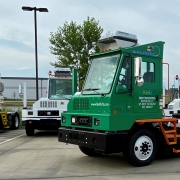 Photo by: Anissa Parra-Grooms, Metropolitan Energy Center
Photo by: Anissa Parra-Grooms, Metropolitan Energy Center